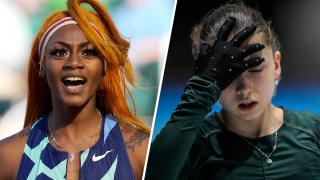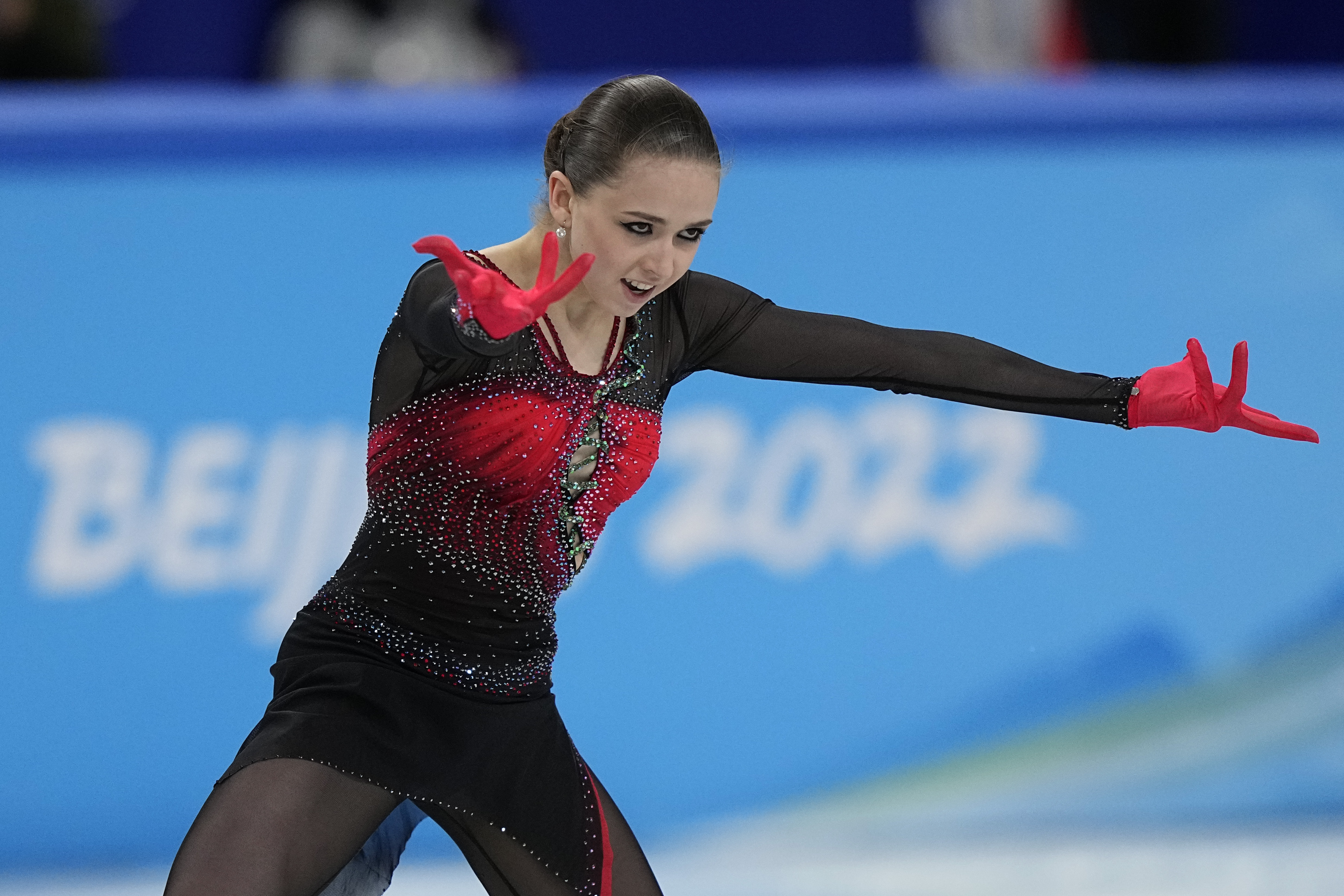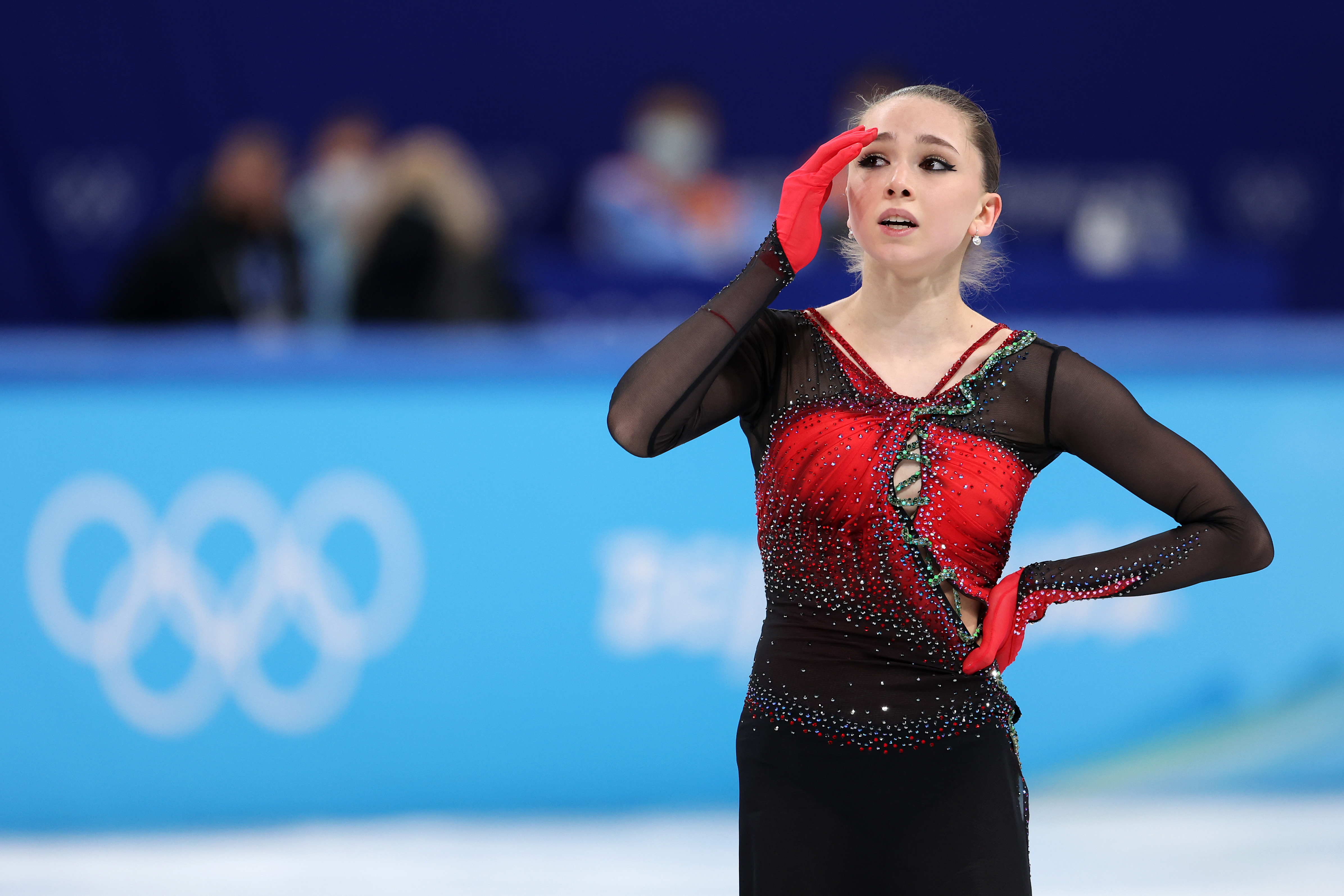
American sprinter Sha'Carri Richardson has questioned why she had to sit out the Tokyo Olympics last summer following a positive drug test while Russian figure skater Kamila Valieva gets to continue competing at the 2022 Winter Olympics.
Richardson was poised to be a favorite in Tokyo after winning the women's 100-meter race at the U.S. Olympic Track and Field Trials in Eugene, Oregon. But after testing positive for THC after the race, she admitted to smoking marijuana upon learning of the sudden death of her biological mother and accepted a one-month suspension from the United States Anti-Doping Agency.
Additionally, USA Track and Field acknowledged that "rules related to THC should be reevaluated," but decided not to add her to the Olympic roster in order to "maintain fairness" for the athletes who didn't violate the banned substances rule. While the timing of her suspension ruled her out of competing in the 100-meter dash, Richardson would have been able to run in the relay event had she been on Team USA's squad.
In Valieva's case, the skater tested positive for a banned heart medication, trimetazidine, that was collected in Russia in December. Why it took six weeks to get the test result is still unclear and any sample given by Valieva at the Olympics has come back clean, according to The Associated Press. Trimetazidine is banned by the World Anti-Doping Agency because it can improve endurance and increase blood flow efficiency — both crucial to any high-end athletic performance.
Get top local stories in San Diego delivered to you every morning. Sign up for NBC San Diego's News Headlines newsletter.
Russia’s anti-doping agency, known as RUSADA, gave her a provisional suspension for the drug tests, then lifted it a day later, freeing her to compete. The decision to lift the suspension was appealed by the International Olympic Committee, the World Anti-Doping Agency and International Skating Union.
The Court of Arbitration for Sport ruled Monday that Valieva could finish the 2022 Olympics despite failing the pre-Games drug test, justifying the favorable decision by noting that the 15-year-old is protected under the World Anti-Doping Code rule book that shifts responsibility to a minor’s entourage.
Richardson felt that ruling was unfair compared to her own situation in 2021, writing in a Twitter post: "Can we get a solid answer on the difference of her situation and mines?"
The most obvious difference, however, is the countries involved.
Sarah Hirshland, the CEO for the U.S. Olympic and Paralympic Committee, issued a statement saying the organization was "disappointed" by the message the Court of Arbitration's decision sends and called it "another chapter in the systemic and pervasive disregard for clean sport by Russia."
Valieva is expected to skate in the women's short program at 5 a.m. ET on Tuesday, Feb. 15.
Latest News on Kamilia Valieva at 2022 Winter Olympics
The Court of Arbitration for Sport has ruled the ROC figure skater is eligible to compete at the 2022 Olympics.



